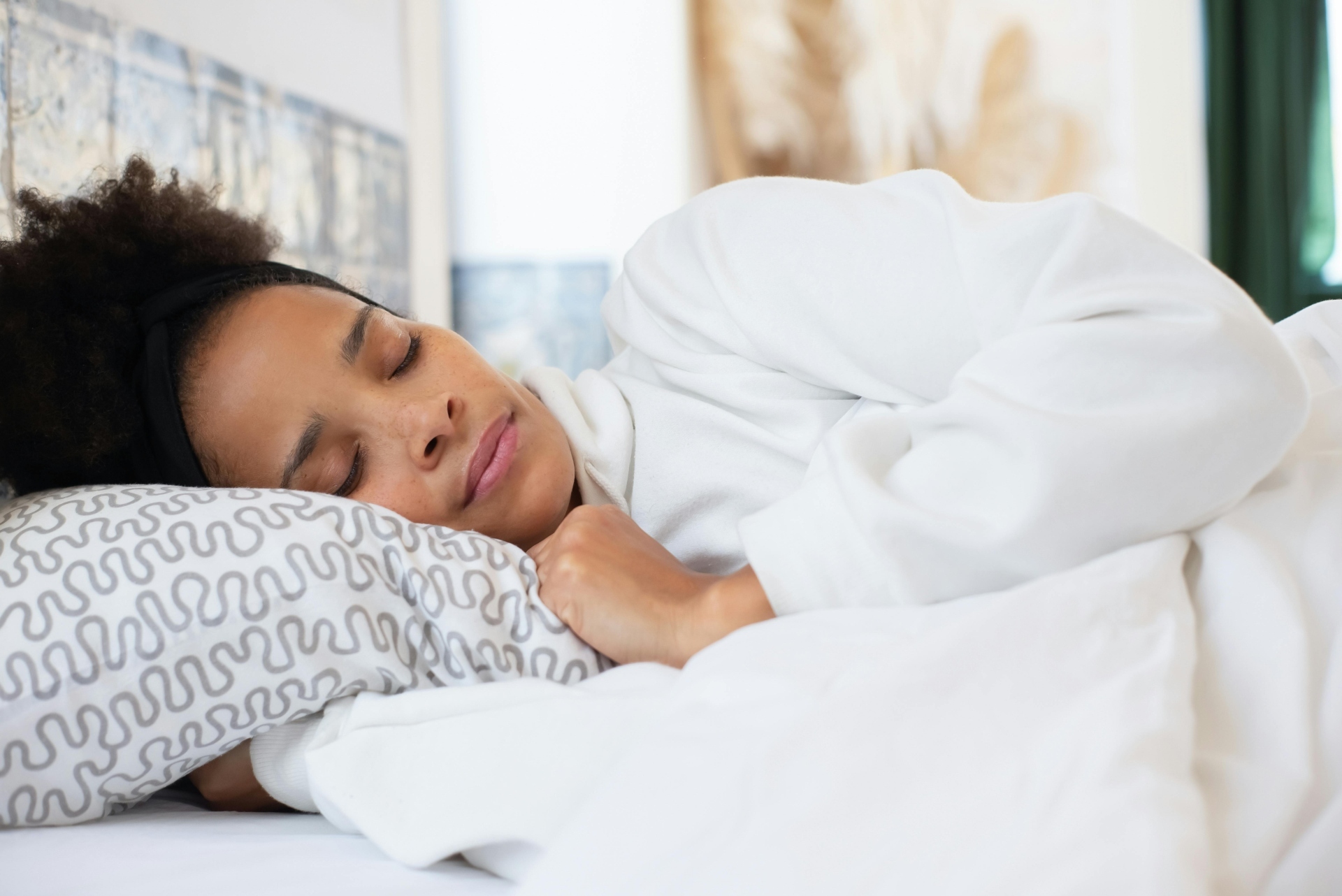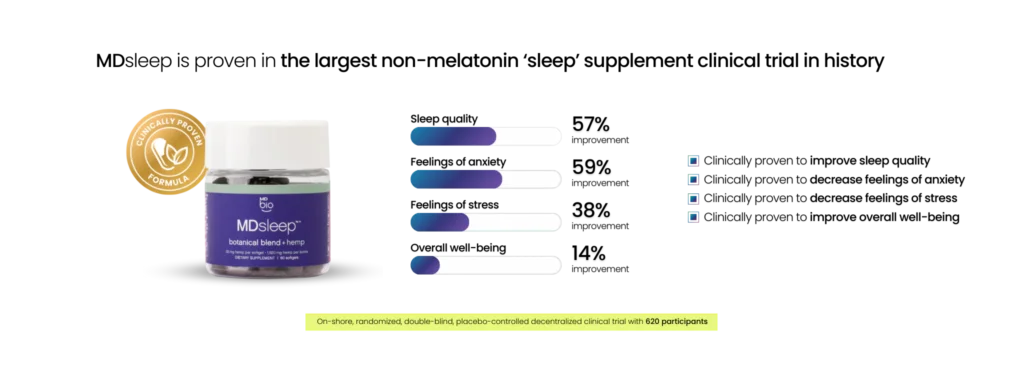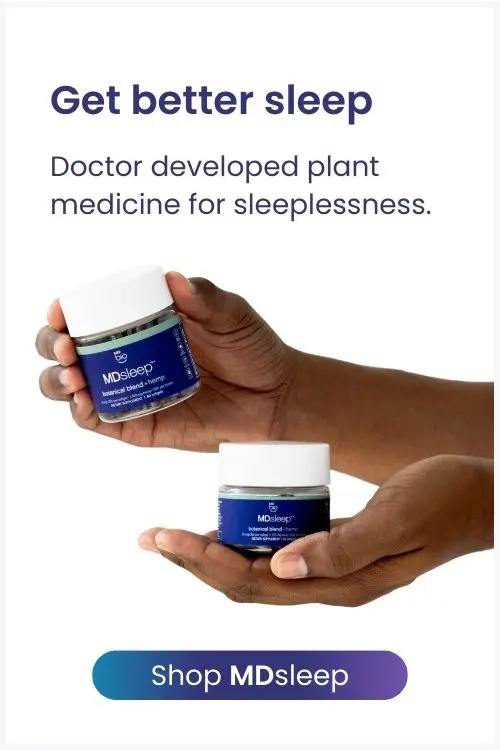

PhotoCredit_Kampus Production_pexels
Struggling with sleep disruptions? It might be due to a lack of vitamins crucial for a good night’s rest. When deficient in these essential vitamins, your body can break down, leading to fatigue and illness. The good news is that not all vitamin deficiencies affect sleep. In this article, we’ll uncover which vitamins can help restore your sleep and get you back on track.
How Vitamins Support Sleep
Vitamins are essential compounds that support various bodily functions. To maintain optimal health, individuals require adequate levels of vitamins such as A, C, D, E, K, and the B group. Each vitamin contributes uniquely to the proper functioning of the brain and body. The term sleep vitamins often refers to specific vitamins that play a notable role in promoting restful sleep.
Effects of Vitamin Deficiencies on Sleep Quality
When we sleep, our bodies are busy repairing. Insufficient A, C, D, E, K, and B vitamins can lead to sleep disturbances. Deficiencies might interfere with the body’s natural sleep-wake cycle, making it difficult for individuals to fall or stay asleep. Vitamins are essential to your brain and body’s natural activities, so without enough of these crucial materials, the body won’t reach the internally active state of sleep.
Best Vitamins for Sleep
Vitamin D for Sleep
Vitamin D is recognized for its pivotal role in maintaining bone health. However, the sunshine vitamin also regulates the body’s sleep-wake cycle. Vitamin D is nicknamed “the sunshine vitamin” because sun exposure on the skin triggers its synthesis, with dietary sources and supplements offering additional amounts.
Its relation to natural light exposure suggests its potential to adjust sleep timings and modulate melatonin production, a crucial hormone for sleep. Additionally, it might influence genes and chemicals integral to sleep cycles. People who live in cloudy climates or have darker skin can be prone to Vitamin D deficiency, interrupting sleep.
Also, during winter time, when there are fewer hours of sunshine and more cloudy skies, it can lead to a Vitamin D deficiency. Lighter-skinned people can get their daily dose of vitamin D with 20 minutes of direct sunlight exposure, while darker-skinned people will need more time in the sun to get their Vitamin D dose.
B-Vitamins for Sleep
The B vitamins, including B3, B6, B9, and B12, play a significant role in supporting hormonal balance for sleep. A deficiency in B1 or B2 could result in fatigue and disruptions in sleep patterns. B12, notably, is crucial in the synthesis of melatonin.
Preliminary indications show that insufficient B12 can be linked with shortened sleep, sleep difficulties, and excessive tiredness during the day. B6 might aid those experiencing insomnia and improve overall sleep quality. It also has potential benefits for those with restless legs syndrome, which leads to sleep disturbances due to an irresistible urge to move the legs.
Vitamin C for Sleep
Vitamin C is a high-powered antioxidant that aids in mitigating oxidative stress caused by unstable free radicals that can damage cells and tissues. Vitamin C is a shield that attaches to the free radical to prevent damage. Insufficient sleep may elevate stress, and excessive oxidative stress can worsen sleep issues. Antioxidants, like vitamin C, can minimize oxidative stress so that the body continues to repair itself properly, especially during sleep.
Vitamin K for Sleep
Research associates low levels of vitamin K with inadequate sleep quality. It may also be linked with depressive states and oxidative stress, both affecting sleep quality. Addressing vitamin K levels could be a piece of the puzzle in improving overall sleep health. Vitamin D and Vitamin K are fat-soluble vitamins that can be taken together in a gel cap to ensure maximum absorption.
Vitamin A for Sleep
Vitamin A is central to detecting light in the eyes, thus influencing the body’s sleep-wake cycle. It affects when people sleep, how long they sleep, and the quality of their sleep. Those with low intake of this vitamin might experience shorter sleep durations. While supplements may help restore appropriate levels in the body, caution is necessary due to potential harm from excessive intake.
Vitamin E for Sleep
Recent findings suggest that a deficit in this vitamin E might correlate with shortened sleep, though its effectiveness in extending sleep duration via supplements remains uncertain. Its antioxidant properties could enhance the quality of sleep. It may assist in reducing night sweats, a common concern for those undergoing menopause and experiencing sleep interruptions. Additionally, combined with the antioxidant champion, it may relieve restless legs syndrome and sleep apnea symptoms.
Shop MDsleep
Find sleep aids that were designed by doctors and validated by research.
Blended Sleep Vitamins
If your diet lacks fruits and vegetables, it’s possible to have more than one vitamin deficiency. That means you must replenish several vitamins to restore your normal sleep cycle. In addition, other natural compounds can help you re-establish your circadian rhythm and fall asleep simultaneously each night.
Consider a Multivitamin Incorporating MDsleep Sleep Enhancer
When seeking sleep supplements, it’s best to choose a product that has been clinically tested. In addition to taking a multivitamin to resolve vitamin deficiencies, a clinically proven sleep aid like MDsleep can help your mind relax and your body shift into a restful state.
MDsleep is a clinically validated sleep aid designed to help individuals fall asleep faster and improve sleep quality. It is formulated to assist individuals in falling asleep more quickly and enhancing overall sleep quality. This product features a combination of natural ingredients recognized for their calming effects, including melatonin and valerian root, which are commonly suggested for improving sleep. These elements work synergistically to encourage relaxation and shorten the time required to drift off to sleep.The sleep aid is designed to deliver effectiveness while minimizing side effects. Many users have reported better sleep patterns without experiencing morning grogginess.
MDsleep +hemp Offers Proven Sleep Benefits
MDsleep’s Full Spectrum Hemp version incorporates hemp-derived compounds, enhancing its sleep-inducing properties. It also utilizes valerian root, lavender, hops, and a mix of natural ingredients known for their calming effects, such as GABA and L-Theanine. Hemp is recognized for its potential to promote relaxation and improve the quality of rest.
The combination of hemp with other sleep-supportive ingredients can help ease anxiety and stress, which are common barriers to a restful night’s sleep. This blend leverages the calming properties of hemp to aid in enhancing sleep duration and reducing nighttime awakenings. MDsleep Botanical formula offers a hemp-free sleep aid with an innovative combination of herbs and natural supplements.
MDsleep Botanical Key Ingredients List
- Valerian Root
- GABA
- L-Theanine
- Hops
- Rest Complex™– our proprietary blend of nervine herbs, including lemon balm, chamomile, and passionflower that calms the central nervous system.
- Bio-Terpene Complex™ –our proprietary blend of botanicals, including Hops, Valerian Root, and Terpene oil, to help boost GABA and serotonin levels while sedative affecting the body’s central nervous system.

Minerals Beneficial for Rest
Calcium for Sleep
Calcium plays a significant role in sleep regulation by facilitating tryptophan, an amino acid that helps increase melatonin production. Melatonin is a hormone essential for maintaining healthy sleep cycles. Insufficient calcium leads to disrupted sleep patterns, making calcium a beneficial mineral for restful sleep.
Natural Sources of Calcium:
- dairy products like milk and yogurt
- leafy greens like spinach, swiss chard, and collard greens
- fortified cereals
Calcium also plays a significant role in promoting better sleep quality by aiding muscle relaxation regulation during deep sleep states. This mineral is essential for producing melatonin, which helps control the sleep-wake cycle. When calcium levels are adequate, melatonin production is optimized, assisting individuals to fall asleep more quickly and maintain uninterrupted sleep throughout the night. Research has shown that low serum calcium levels can disrupt sleep-wake control and rest-activity rhythms, even when these levels are within the normal range. Calcium supplementation for sleep enhancement has been found to improve sleep quality in specific groups, such as women and individuals with low baseline calcium levels. These findings suggest that ensuring adequate calcium intake can be a natural and effective way to enhance sleep quality. By supporting the body’s natural sleep mechanisms, calcium not only aids in falling asleep but also in maintaining a deep and restful sleep, which is crucial for overall health and well-being.
Magnesium’s Role in Restful Sleep
Magnesium is a mineral known for its ability to promote relaxation and improve sleep quality. It aids in regulating neurotransmitters, which are critical for calming the nervous system and preparing the body for sleep. Foods such as nuts, seeds, and whole grains are high in magnesium and can be beneficial for those struggling with sleep disturbances. Some studies suggest magnesium supplementation may enhance rest quality and duration, making it a valuable addition to a sleep-supportive regimen.
Commonly Asked Questions
Which vitamins improve sleep quality the most?
Vitamins can play a role in enhancing sleep quality. For instance, B vitamins, particularly B6 and B12, support sleep by regulating melatonin production. Magnesium and calcium are also contributed by relaxing muscles and calming the mind.
What might a lack of vital nutrients cause if sleep issues arise?
Lacking A, C, D, E, K, and B vitamins can disrupt sleep. A magnesium deficiency might also lead to muscle tension and restlessness at night.
Which vitamins are associated with promoting sleepiness?
Some vitamins are associated with promoting relaxation and helping induce sleepiness. For instance, vitamin D and omega-3 fatty acids are often cited for calming the body and mind. These nutrients help maintain a restful state by balancing serotonin levels.
Can melatonin supplements aid in sleep pattern regulation?
Melatonin supplements are often used to help adjust sleep patterns, particularly in cases of jet lag or shift work. However, melatonin should only be used for up to 2 weeks to prevent depletion of neurotransmitters in the brain.
In what ways does magnesium support better sleep?
Magnesium contributes to quality sleep by aiding in muscle relaxation and reducing anxiety. This mineral works as a natural relaxant by decreasing the amount of cortisol produced, which can prevent stress from affecting sleep.
Are there specific nutrients advised for people with insomnia?
Individuals struggling with insomnia might benefit from nutrients like magnesium and melatonin, which promote relaxation. Sleep health experts suggest focusing on a diet rich in these nutrients as part of a natural insomnia management plan.
Can vitamin B12 assist in enhancing sleep?
Vitamin B12 is crucial for energy production and neurological function, yet it also supports regulating the sleep cycle. Its role in melatonin synthesis can indirectly aid in adjusting sleep patterns, offering a potential benefit for some individuals.
Which natural supplements are known as powerful sleep aids?
Natural supplements such as valerian root, chamomile, hops, and passionflower are known for their sleep-enhancing properties. MDsleep sleep aid combines valerian root with hops, L-Theanine, and GABA to create a clinically proven sleep aid.
CBN vs. CBD vs. CBG: A Comprehensive Guide
Compare CBN, CBD, and CBG side by side to see how each cannabinoid affects sleep, pain, and anxiety. Find out which may offer the most benefits for your sleep routine.
Read more
CBG vs. CBN: Which Cannabinoid Is Better for Sleep?
Explore the differences between CBG and CBN, two non-psychoactive cannabinoids, and learn how each may impact energy, focus, and sleep quality. This guide discusses their unique effects, benefits, and best uses for rest and relaxation.
Read more
Full Spectrum Hemp: Benefits and Uses
Explore the advantages of full-spectrum hemp, including its diverse cannabinoid profile and potential for promoting better sleep and relaxation. Learn how the “entourage effect” may enhance the efficacy of hemp-based sleep aids.
Read more
CBN vs. CBD: Comparing Sleep Benefits
Discover how CBN and CBD differ in their origins, effects, and potential for improving sleep. The article covers their unique properties, legal status, and which might be better suited for your sleep needs.
Read more
CBG vs. CBD: Which Is Right for You?
Uncover the distinctions between CBG and CBD, including their mechanisms of action and potential wellness applications. Learn which cannabinoid may best support your sleep and overall health.
Read more
CBN for Sleep: How Cannabinol Can Help
Delve into the science behind CBN as a sleep aid, including its sedative properties and how it interacts with your body’s endocannabinoid system. This resource covers dosing, benefits, and considerations for using CBN to improve sleep.
Read more
THC for Sleep: Effects and Proper Dose
Learn how THC influences sleep patterns, its potential benefits and risks, and how to determine the right dosage for restful nights. The article provides expert guidance on using THC safely for sleep support.
Read more

Kia Michel, MD
Physician
Kia Michel, MD is an urologist and staff surgeon at Cedars-Sanai Medical Center in Los Angeles. As a founding member of Comprehensive Urology in Beverly Hills, he believes in treating all aspects of a patient’s wellbeing in order to achieve optimal health. After 25 years in private practice, Dr. Michel believes that a good night’s sleep is essential to maintaining your health, which inspired him to co-create the MDsleep community and the Sleep Doctors Blog.
What Our Readers Say
“Thanks to the insightful articles, I’ve finally managed to get back to my old sleep routine. I feel more rested and energetic each day!”
“The blog’s advice on sleep hygiene has been a game-changer for me. I never realized how small changes could make such a big difference.”
“I struggled with insomnia for years, but the tips I found here have helped me sleep through the night consistently. Thank you!”
“I no longer feel like a zombie from The Walking Dead series! I finally have my life back.”
Stay Updated with Our Newsletter
Join our community of sleep enthusiasts! Subscribe to receive the latest blog posts and exclusive sleep tips straight to your inbox.
Follow Us for More Sleep Insights
Discover Better Sleep Solutions
Unlock the secrets to a restful night by exploring our expert-backed articles and join our vibrant community for personalized sleep tips.
List of References:
- https://pmc.ncbi.nlm.nih.gov/articles/PMC9331058
- Fairfield, K., Tangney, C., & Rosenson, R.. (2022, November 2). Vitamin intake and disease prevention. In D. Seres & D. Gersh (Ed.). UpToDate., Retrieved May 18, 2023, from
https://www.uptodate.com/contents/vitamin-intake-and-disease-prevention - A.D.A.M. Medical Encyclopedia. (2015, April 2). Vitamins. MedlinePlus., Retrieved May 18, 2023, from
https://medlineplus.gov/vitamins.html - Lee, H. J., Choi, H., & Yoon, I. Y. (2020). Sh serum vitamin D levels impact sleep and daytime sleepiness according to working conditions. Journal of Clinical Sleep Medicine: JCSM: official publication of the American Academy of Sleep Medicine, 16(7), 1045–1054.
https://pubmed.ncbi.nlm.nih.gov/32108568/ - Huiberts, L. M., & Smolders, K. C. H. J. (2021). Effects of vitamin D on mood and sleep in the healthy population: Interpretations from the serotonergic pathway. Sleep medicine reviews 55, 101379.
https://pubmed.ncbi.nlm.nih.gov/32987320/ - Ikonte, C. J., Mun, J. G., Reider, C. A., Grant, R. W., & Mitmesser, S. H. (2019). Micronutrient Inadequacy in Short Sleep: Analysis of the NHANES 2005-2016. Nutrients, 11(10), 2335.
https://pubmed.ncbi.nlm.nih.gov/31581561/ - Johnson, L. (2022 November). Thiamin Deficiency. Merck Manual Professional Version., Retrieved May 18, 2023, from
https://www.merckmanuals.com/professional/nutritional-disorders/vitamin-deficiency,-dependency,-and-toxicity/thiamin-deficiency
8. Hysing, M., Strand, T. A., Chandyo, R. K., Ulak, M., Ranjitkar, S., Schwinger, C., Shrestha, M., & Kvestad, I. (2022). The effect of vitamin B12-supplementation on actigraphy measured sleep pattern; a randomized control trial. Clinical nutrition (Edinburgh, Scotland), 41(2), 307–312.
https://pubmed.ncbi.nlm.nih.gov/34999324/

